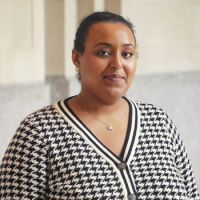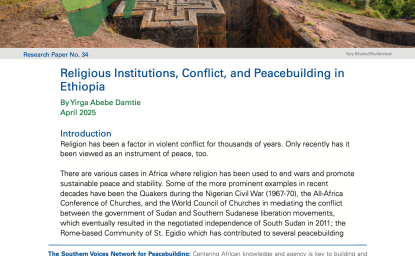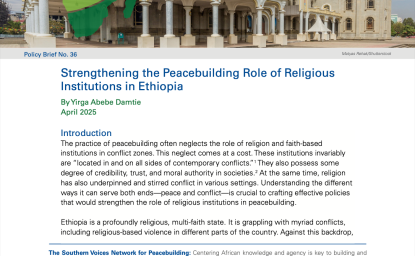T
he youth demographic represents an important, growing, and increasingly vocal and involved voting group in African countries. In 2024, young Africans progressively asserted their voices through protests, online activism, and electoral participation. As Africa’s population is on pace to nearly double in the next 25 years, the continent will continue to be home to the world’s youngest demographic, and governments need to consider enacting robust and strategic policies to channel demographic rather than dependency.
Thirteen primary and presidential elections were held across Africa in 2024, and many of these elections felt the impact of the growing youth political engagement. Youth-led protests and organized political involvement marked this significant election year as demands for government accountability and policies prioritizing quality education and economic opportunities highlighted young peoples’ determination to shape a brighter, more stable future for themselves, their nations, and the continent.
Young Africans demonstrated their political power by turning to the polls to cast their votes and taking to the streets to voice their concerns. In Senegal, there were youth-led demonstrations to protest former president Macky Sall’s postponement of presidential elections. The protests contributed to the elections going forward, with Bassirou Diomaye Faye being elected president. Faye ran on a campaign promising economic opportunities and anticorruption measures, a clear reflection of young voters’ priorities. In Namibia, two-thirds of the 1.4 million registered voters were youth, accounting for 58% of voter turnout. Although results are in dispute, these statistics paint a powerful picture of the immense potential for their influence on the political process. Alternatively, in South Africa, voter turnout among young people dropped by 3% from the 2019 elections, illustrating a growing apathy with the country’s political processes due to frustration over corruption. Beyond elections, in Kenya and Nigeria, young people took to the streets and social media to express discontent with fiscal policies increasing the cost of living. In Kenya, the Gen-Z-led efforts resulted in President Ruto withdrawing the 2024 finance bill and reshuffling his cabinet.
The youth demographic has shown their power and most pressing concerns through their engagements around political processes, and now elected officials must take heed. They must ensure government transparency and accountability to rebuild trust and political engagement among young people. They must also foster collaboration between Regional Economic Communities, international stakeholders, civil society, and the private sector to produce opportunities for economic security and growth. The United States can also play a pivotal role by partnering with stakeholders and heavily investing in major industries and innovation, such as tech and agriculture, to promote economic growth. Young Africans have immense transformative potential, and governments would be wise to leverage their energy, creativity, and sheer numbers to promote growth because, if neglected, nations risk instabilities that pose serious threats to their countries and beyond.
Author


Africa Program
The Africa Program works to address the most critical issues facing Africa and US-Africa relations, build mutually beneficial US-Africa relations, and enhance knowledge and understanding about Africa in the United States. The Program achieves its mission through in-depth research and analyses, public discussion, working groups, and briefings that bring together policymakers, practitioners, and subject matter experts to analyze and offer practical options for tackling key challenges in Africa and in US-Africa relations. Read more

Explore More
Browse Insights & Analysis
Religious Institutions, Conflict, and Peacebuilding in Ethiopia

Spying on Poachers

